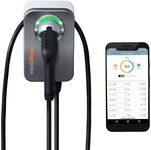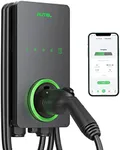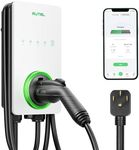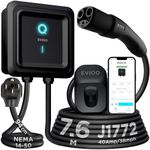Best Ev Chargers
From leading brands and best sellers available on the web.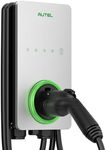
Autel
38%OFF
Autel Home Smart Electric Vehicle (EV) Charger up to 50Amp, 240V, Indoor/Outdoor Car Charging Station with Level 2, Wi-Fi and Bluetooth Enabled EVSE, 25-Foot Cable(Silver)
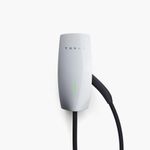
Tesla
Tesla Wall Connector - Electric Vehicle (EV) Charger - Level 2 - up to 48A with 24' Cable

Grizzl-E
Grizzl-E Ultimate Level 2 Fastest 80A / 19.2 kW Electric Vehicle (EV) Charger, UL Tested and Certified, Metal Case, Indoor/Outdoor Electric Car Fast Charging Station, Hardwired, Classic Black, J1772
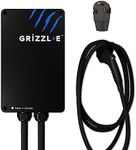
Grizzl-E
Grizzl-E Level 2 EV Charger, 16/24/32/40 Amp, NEMA 14-50 Plug/06-50 Plug, 24 feet Premium Cable, Indoor/Outdoor Car Charging Station, Classic/Avalanche/Extreme (Classic 06-24-PB)
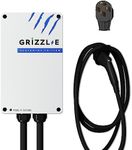
Grizzl-E
Grizzl-E Classic, Level 2 240V / 40A Electric Vehicle (EV) Charger, UL & Energy Star, Metal Case Enclosure, Indoor/Outdoor Electric Car Fast Wall Charging Station, NEMA 14-50 Plug, Avalanche Edition
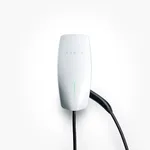
Tesla
Tesla Universal Wall Connector - Electric Vehicle (EV) Charger with Dual Plug Type - Compatible for All North American EVs - Level 2 - up to 48A with 24' Cable

Autel
Autel MaxiCharger Home Smart Electric Vehicle (EV) Charger, 40 Amp Level 2 Wi-Fi and Bluetooth Enabled EVSE, Indoor/Outdoor Car Charging Station, with in-Body Holster and 25-Foot Cable(14-50 Plug)
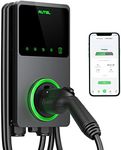
Autel
25%OFF
Autel Home Smart Electric Vehicle (EV) Charger up to 50Amp Hardwired Level 2 EV Charger Indoor/Outdoor Car Charging Station, with in-Body Holster Hardwired

Grizzl-E
Grizzl-E 48A Ultimate Level 2 Fast 48A Electric Vehicle (EV) Charger, UL Tested and Certified, Metal Case, Indoor/Outdoor Electric Car Fast Charging Station, Hardwired, Classic Black, J1772

